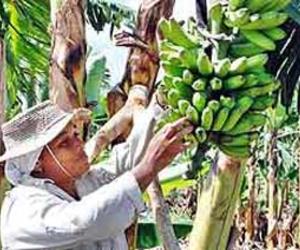Latin American Rural Women Face Common Problems
- Submitted by: manso
- Society
- 07 / 04 / 2011

03 de julio de 2011, 09:51Por Francisco G. Navarro. Cienfuegos, Cuba (Prensa Latina) The effects of armed conflicts, the right to land, defending identity and gender equality are all common problems shared by many Latin American rural women, the focus of the recently-concluded 3rd International Conference of Rural Women.
Held in the central-southern port city of Cienfuegos and sponsored by the NGO Oxfam International, the event brought together Cubans and about 20 colleagues from Colombia, Guatemala, Nicaragua and Peru.
Previous conferences were held in Guatemala and Nicaragua.
Guatemalan activist Maria Guadalupe Garcia recounted to Prensa Latina the drama of how thousands of women from her country fled over the border to Mexico from 1981 to the mid-1990s as a result of the internal armed conflict.
In Mexico, those women formed their own organization to make women's voices heard, Encuentro de Mama Maquin, which together with others, like Madre Tierra, makes up the Alliance of Rural Women.
Referring to the war, Garcia said, "They stripped us of our identity as Mayans and also many women were raped by the Guatemalan army. Nobody wanted to talk about that, but now many are stepping up to report the violence suffered during those years.
Colombian Margarita Hilamo of the Nasa community, representing the Association of Indigenous Cabildos from Northern Cauca (Cxab Wala Kiwe).
Hilamo told about the formation in May 2001 of the Indigenous Guard (Kiwe Thegnas in her language), an institution whose fundamental mission is based on the control and defense of their territory, besieged by military forces for years.
"Many women are missing or have been killed, and there are traumas such as displacement and forced recruitment," she said.
One situation deriving from the neoliberal policies implemented in these countries in recent decades is the efforts of indigenous communities to defend their natural resources in the face of the voracious appetite of transnational corporations.
Nicaraguan Rosa Pasquier, who heads Oxfam projects in her country, said encouraging the participation of Latin American rural women in defending their rights and in the fight to achieve equality is part of what drives these conferences.
Blanca Landera, an executive board member of the National Federation of Cooperatives of Nicaragua, highlighted the fact that gender policy was passed last year in that organization, and now women's agricultural cooperatives may exist.
Another step for social inclusion in that country was taken by the National Assembly, when it passed a law creating a fund so that women can buy land, although it has not yet been implemented.
Beat Schmid of Switzerland, coordinator of the Oxfam International joint program in Cuba, noted that these conferences were indispensable for exchanging experiences and knowledge and learning from Cuba's experience in agriculture.
Cuba is a potential source of good practices for other countries in the subcontinent, Schmid said.
"Because of its progress in equality between men and women, Cuba has a lot to teach Latin America," the Oxfam coordinator said.
Comments